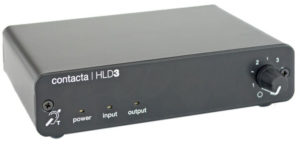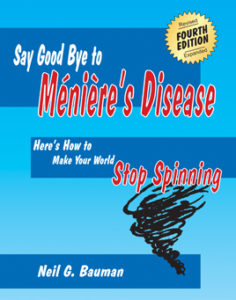by Neil Bauman, Ph.D.
A man wrote:
It is with great relief that I read your on-line article on Musical Ear Syndrome as printed in Hearing Health, Volume 20:4 Winter 2004.
My elderly mother (who lives alone after the death of my father several years ago) has been complaining to neighbors and her condominium board about other tenants playing loud music in the middle of the night.
Her most recent incident (last night in fact), resulted in her climbing a step-ladder and banging on the ceiling to complain to neighbors upstairs because she was convinced they were playing “U.S. marine corps” marching music. Originally, she thought it was her neighbor next door, until this woman convinced her satisfactorily enough it wasn’t her.
My mother is very hard of hearing. Given that she can barely hear a person 3 to 4 feet away speaking to her, I couldn’t see how she could hear music from an adjoining condominium! When I suggested that she might be experiencing auditory hallucinations (I used this term prior to finding your article), she was incensed that I might suggest she was “crazy.”
Nonetheless, I asked her to keep an open mind about it. Fortunately, I found your article, called her back (after she stopped fuming), and read excerpts from your article. She has now calmed and seems open to the possibility that her condition may be Musical Ear Syndrome (MES).
It is interesting to note that my mother is elderly, widowed and lives alone in an otherwise quiet environment. Also, she is prescribed by her family physician to take Effexor (an anti- depressant as I’m sure you know). I have read other articles on the Internet of people who seem to experience some symptoms, characterized by MES, who also happen to be on anti-depressants such as Paxil. I’m curious if some anti-depressants could be a compounding or contributing factor to MES?
Thank you again for your article. It may very well have saved my mother from becoming known by residents in her condo as the “crazy woman” downstairs!
In the same manner as this article helped your mother, a lot of people also find relief when they read it. Your mother’s experiences are certainly not unknown. I hear about such experiences all the time. For example, just yesterday I was talking to a lady—trying to convince her that what she heard was all in her head and not her upstairs neighbor.
You see, this phantom music sounds totally real, so it is almost impossible to believe that it has no outside source, but that it is generated completely in your head. As a result, you look for another logical source of this music (and often it happens to be your undeserving neighbor who bears the brunt of your wrath).
Like your mother, many people who hear such phantom sounds fail to realize that with their poor hearing, they can’t possibly hear real sounds outside of their apartments in the first place! Thus this is a strong indication that what she is hearing is phantom music, not real sound.
If you admit you are hearing phantom sounds, immediately you think you must be crazy because typically this is your only frame of reference. Few people realize that there are actually two kinds of auditory hallucinations—hearing one kind means you have a mental illness, but hearing the other kind (which I call Musical Ear Syndrome or MES) just means that your auditory circuits aren’t working quite right anymore—but it has nothing whatsoever to do with mental illness.
Being elderly, having a severe hearing loss and living alone are three of the common factors in people hearing MES. Being anxious and/or depressed are two more.
Since your mom is on anti-depressants it could be that these anti-depressant drugs that are causing her to hear the phantom MES sounds. (In case you didn’t know, both Effexor and Paxil are known to cause hallucinations.)
However, as I said above, depression is a factor in itself—and most likely, a relatively major factor—so the anti-depressants might not be the cause of the MES, but rather the underlying depression they are supposed to be treating may be a major factor.
Your mom might find reading my book “Phantom Voices, Ethereal Music & Other Spooky Sounds” will really help her. It is an easy book to read and includes hundreds of stories of others and their MES, as well as the causes of MES, and the 8 things a person can do to help themselves get rid of it. She will see that others hear exactly the same kind of things she hears (and react in similar ways too).


